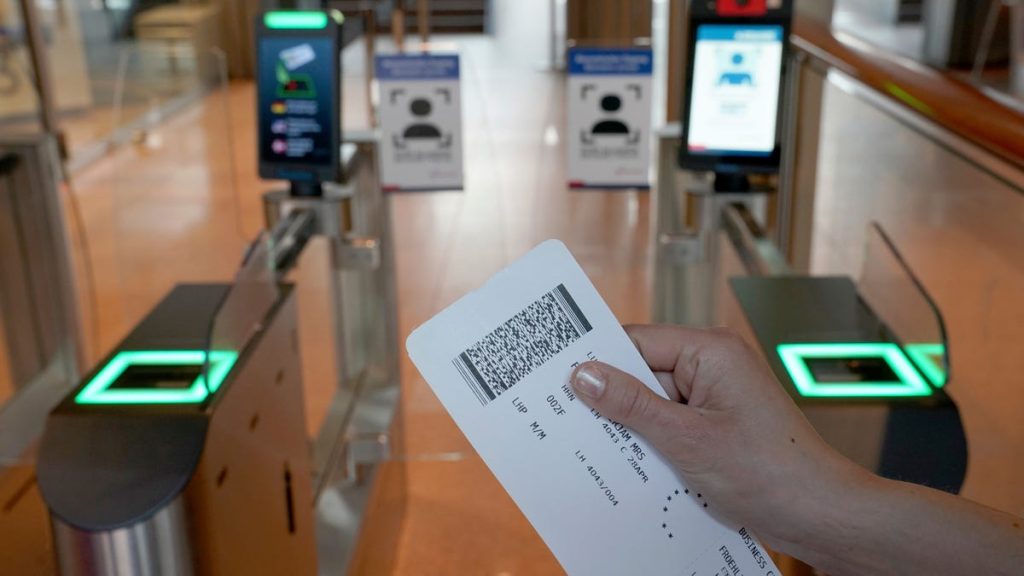Do You Have to Use Facial Recognition in Airports?

28 April 2022, Hamburg: A woman holds up a boarding pass in front of the biometric face field recognition system at the security checkpoint in the departure area of Hamburg Airport. The new service is available to Star Alliance (Austrian, Swiss and Lufthansa) passengers participating in the Miles & More loyalty program. Passengers are given contactless access to the security checkpoint and boarding. A boarding pass or smartphone no longer need to be presented. Photo: Marcus Brandt/picture-alliance/dpa (AP)
If you’ve flown recently, you may have noticed new facial recognition cameras checking IDs against faces, rather than an over worked and underpaid Transportation Security Administration agent. But how secure is it? And do you have to participate?
The Washington Post has a detailed look at the TSA’s use of facial recognition so far in 12 busy airports around the country, and the Administration’s plans to expand the technology to airports nationwide. While the TSA says the facial recognition turnstiles save everyone time, security concerns abound. From the Post:
When some people hear about governments using facial recognition, they rightly picture the situation in China, where broad use of the technology makes it extremely difficult for citizens to evade surveillance. Does going through airport security now mean Homeland Security has a face ID that can identify you at a protest?
The TSA says it doesn’t use facial recognition for law-enforcement purposes. It also says it minimizes holding on to our face data, so it isn’t using the scans to build out a new national database of face IDs.
“The scanning and match is made and immediately overwritten at the Travel Document Checker podium. We keep neither the live photo nor the photo of the ID,” said Lim. But the TSA did acknowledge there are cases in which it holds on to the data for up to 24 months so its science and technology office can evaluate the system’s effectiveness.
[…]
Just remember: Any time data gets collected somewhere, it could also be stolen — and you only get one face. The TSA says all its databases are encrypted to reduce hacking risk. But in 2019, the Department of Homeland Security disclosed that photos of travelers were taken in a data breach, accessed through the network of one of its subcontractors.
It’s not just privacy concerns. Such technology has been shown to frequently produce errors when non-binary people and people of color travel. Body scanners are already a nightmare for trans people.
Do you have a right to refuse the facial recognition scans? That is a little more tricky. The TSA insists that the facial recognition kiosks are not a requirement nor will passengers be penalized for skipping it. Passengers, a spokesperson told the Post, can still have their IDs checked by agents who can turn off the cameras.
G/O Media may get a commission
But will you? The current policy doesn’t mean that the facial recognition scanners won’t be made mandatory in the future. And most folks want to get through airport security as quickly as possible and don’t want to cause any unneeded headaches for those around them. We put up with ridiculous, ineffective and invasive security measures as it is, what one more to add on?
I don’t trust the government to keep anything safe from hackers, or to use any technology in anything approaching a socially responsible way. But I also internally start freaking out when someone has to be told they need to take off their shoes in security. What will happen when the traveller is accused of holding up the line or is penalized with a longer wait time for choosing not to use the scanner?
Head over to the Washington Post for more.




